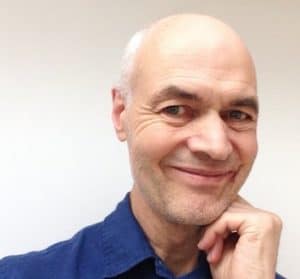Learning to ask the right kinds of questions. Learning to listen into the places that are silent, or hidden, these are skills that require the honing of time and attention.
In this episode we discuss modern brain science, the verbal and non-verbal aspects of our brains, and how the body has its own multi-textured way of communicating that is often baffling to the voice in our heads that trying to make sense of things.
Listen in for a discussion on the use of words to get beyond words.
- Do we believe the stories we tell about ourselves and do the really matter?
- There are some good neurological reasons for why do don’t know what we are doing much of the time when we are doing our work
- Developing a more mindful relationship with symptoms
- Encouraging change to happen at a pace that is right for the entire system
- The body-mind speaks in a non-verbal way
- Another look at right/left brain function and the clinical implications
- While the Corpus Callosum connects the right and left sides of the brain together, much of its action is inhibitory
- Simple mindful questions can calm the left side of the brain and allow some information from the right side to seep through
- A case study using Clean Language
- In the beginner’s mind there are many possibilities, in the expert’s mind there are few
- Attending to our attention
- Michael’s short exploration into Clean Language inquiry
- Allowing our patients to be able to hear what is going on inside of themselves, without imposing our ideas or structures
Clinic Tip
Zen master Shunryu Suzuki said: ‘When you listen to someone, forget what you have in your mind and just listen…If your mind is empty, it is ready for anything and open to everything.’ But of course, as soon as you empty your mind, it starts filling up again. Clean Language really helps you become aware of this; in fact, by asking Clean questions, you turn the conversations you have with your patients into a mindfulness practice all of its own.
 Nick Pole
Nick Pole
I’ve been practicing, teaching and writing about shiatsu since I graduated from the Shiatsu College in the UK in 1989. I spent the first ten years of my shiatsu studies trying to find the best teachers I could and then doing my best to copy them. It always worked for a while, but then I would come back to the same intangible sense that something important was missing. Meanwhile, to improve my skills as a shiatsu teacher, I studied NLP in some depth and that led me to Clean Language. That was it! – a way to bring language into my sessions by asking questions that make sense to the body. With its Zen-like simplicity and rigor, Clean Language invites both practitioner and client to listen to themselves in a truly mindful way.
How could someone who loved language as much as I did come to be practicing shiatsu, which in its original Japanese form at least is done almost without any words at all? Bringing this subtle and elegant questioning process into my sessions helps my clients listen to themselves, and helps us to come to a shared understanding of what they want to achieve. When you invite the bodymind into the conversation like this, painful and frustrating symptoms can rapidly turn into signposts on the path towards the kind of life a person really wants to be living.
And in researching my book ‘Words That Touch’ (2017), I found the neurological explanation for Lao Tzu’s great riddle: the Tao that can be spoken of is not the ‘constant/eternal/real’ Tao because speech traps us in the left brain hemisphere’s abstract world of names, concepts and categories, at one remove from reality. It’s only through the right hemisphere and its wordless but deeply embodied way of knowing, that we can ever get a sense of what the unspoken Tao is really all about. This is how I love to work, integrating gentle and respectful questioning with the meridian-based bodywork of shiatsu. That way, we invite the two sides of the brain to have a better relationship with each other and our patients to have better relationships with themselves.
Links and Resources
Visit Nick at his website
Iain McGilchrist has done a lot of work on brain hemispheres. And you can further dig into his work in the book The Master and His Emissary that we discussed in the podcast.
For excellent online courses for therapists on mind/body psychology visit www.nicabm.com
That fantastic pianist that Nick mentioned in the show; that’s Mitsuko Uchida. Here is an example of her brilliance.
Join the discussion!
Leave a comment on Qiological’s Facebook page.
